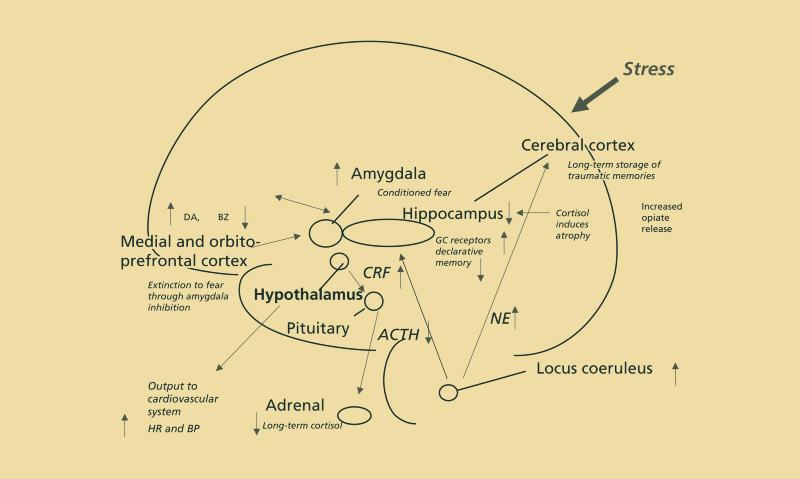Christmas wouldn’t be Christmas without _________ (fill in the blank). Many would insert the word “family” as they imagine images of intergenerational family members cooking, eating and laughing together over stupid funny stories at the dinner table. For single men and women, the idea of Christmas would be more enjoyable if they could introduce someone new and avoid another barrage of questions like, “Why are you still single?” Unfortunately, for millions of Americans, the need for familial love and the companionship of close friends and loved ones goes unmet year after year, and when Christmas rolls around, it’s just another reminder that one more year has passed without any beacon of hope at the end of the tunnel. There are no signs of a promising relationship or any reason to believe that things will get better with one’s terribly dysfunctional family. Seasonal Affective Disorder (S.A.D.) kicks in, and the soil becomes fertile for drug and alcohol abuse. However, that is just a lie. There is hope, and nobody said that love has to be confined within one’s biological definition of a family.
What is Seasonal Affective Disorder (S.A.D.)?
Seasonal Affective Disorder (S.A.D.) belongs to a category of depressive disorders and the onset of S.A.D. usually occurs around the fall and winter months with periods of normal moods the rest of the year. Although S.A.D. is most often associated with the holiday season, it is not exclusive to the fall and winter months. It is called a “seasonal” disorder because it only happens during specific seasons of the year. Seasonal Affective Disorder (S.A.D.) is a subtype of recurrent major depressive disorder and bipolar disorder, exhibiting any of the following symptoms:
• Apathy toward favorite hobbies and activities
• Chronic sadness
• Changes in appetite and weight
• Difficulty with sleeping
• Feelings of hopelessness
• Lethargy and agitation
• Suicidal ideation
• Impaired concentration
• Hyperactivity
• Reduced need for sleep
• Social reclusion
It is more common for individuals to experience depressive episodes than bipolar episodes. Among those at risk for developing Seasonal Affective Disorder (S.A.D.) are young women in their 20s and 30s; those who live far from the equator or receive limited sunlight, and those who have family histories of depression, bipolar disorder and S.A.D. To be diagnosed for Seasonal Affective Disorder, one must have experienced the above-mentioned symptoms for a minimum of two years, with seasonal depressions occurring much more frequently than non-seasonal depressions.
Resist Succumbing to Self-Medication and Substance Abuse
The debilitating emotional havoc that Seasonal Affective Disorder wreaks on people can lead to alcohol and drug abuse or it can trigger a relapse in those who are in recovery if they do not take the proper steps to build resistance to self-medication. It’s tempting to isolate yourself from friends and family around this Christmas season. Seasonal Affective Disorder (S.A.D.) will make you (falsely) believe that your loved ones don’t care about you or they don’t want to hear what you have to say. It makes you turn inwardly instead of reaching outwardly for help. Emotions are so intense and strong that they feel real, but they actually are not the reflection of reality or truth. If you have Seasonal Affective Disorder (S.A.D.), however, distinguishing the reality from your emotions would be extremely hard to do, because oftentimes emotions are grounded on bad personal experiences and how we interpret those experiences. If you desired a certain event to happen by this year, for example, it’s easy to believe that the event will never happen if you have waited two, three or even ten years for it to happen. If it hasn’t happened yet, does it mean it never will? Seasonal Affective Disorder (S.A.D.) would tell you, “It won’t happen.” But hope will tell you it will, and it will give you the motivation to do things differently so it will actually happen.
When people feel Seasonal Affective Disorder (S.A.D.), they interpret their emotions as truth. Actions speak louder than words, and in many cases, though we may not be in touch with the “truth” we feel in our hearts, our actions tell others what we actually believe, and our behaviors are a response to what we deeply believe from within. Emotions are valid, meaning that you can’t help feel what you feel. It would be wrong to repress anger and deny that you feel angry, but it would also be wrong to assign self-worth to any negative emotion. Just because something didn’t work out, it does not mean that you are worthless. You may have made a mistake, but you are not a mistake. Seasonal Affective Disorder distorts the truth and makes you believe lies that attack your identity, many of which are like tape recordings that replay in your mind from past negative events.
Is it enough to browse for self-help books at Barnes & Noble and overcome feelings of low self-worth? That depends on your personal history. Everyone is different, and for those who have a history of substance abuse and addiction, recovering from traumatic events, depressive orders or other behavioral health challenges would require more than just perusing a handful of books written by behavioral health experts. The structure of the brain is literally changed by events big and small, and if you’ve had some Adverse Childhood Experiences (ACEs) or some form of post-traumatic stress disorder as an adult, the altered structure of your brain may compromise your ability to make decisions, creating the potential for substance abuse addiction. Instead of turning to the right kind of help such as cognitive-behavioral therapy, many turn to self-medication by imbibing alcohol at the local bar, engaging in risky behaviors, and abusing drugs.
Photo credit: https://www.ncbi.nlm.nih.gov
Build Resistance against Holiday Stress
There are ways to strengthen protective factors against holiday stress this Christmas season. These age-old tips never die:
• Get plenty of rest (allow for a minimum of 7-8 hours of sleep). Plan a little get-away, even if it’s for two days, and take a break from all the stress and craziness so you can restore your energy and strength. This will improve your job performance and overall mood.
• Recognize what (and who) your stressors are. If there are people who put you down, criticize your every move, or provoke fights for no reason, remove them from your social networks whenever possible. If you are double-booking or committing yourself to too many appointments, don’t give in to people-pleasing tendencies. Just say “no” and commit to what you can while you keep supportive people around you.
• Eat right and get some exercise. Even if you don’t have a gym membership, stretch and move your body every 25-30 minutes so you’re not sitting still at a desk for extended periods of time. If you like to munch between meals, snack on fruits instead of chips. Drink water instead of soda.
• Use your calendar more often to manage your time, if you haven’t done so already. It makes it easier for you to see what you have planned ahead. You are more likely to keep your commitments and have a justified reason for saying “no” to extra stuff.
• Be mindful of your thoughts. Make it a point to find the good in every bad situation. Turn your negative thoughts into positive ones. Tell yourself something like, “This may not be working out right now, but it will, because I will figure it out. If I can’t do it myself, I will find the help to get it done.”
Dual Diagnosis Treatment for Substance Abuse and Seasonal Affective Disorder
During this holiday season, if you find that your efforts to feel better have not really helped, don’t be afraid to reach out to New Method Wellness in San Juan Capistrano, CA. A premier dual diagnosis treatment center, New Method Wellness has helped individuals from all over the United States overcome addiction to substance abuse and behavioral health disorders such as Seasonal Affective Disorder. Their evidence-based therapy and holistic programs have been nationally featured on platforms such as A & E’s Intervention. Handpicked by Dr. Phil, New Method Wellness is one of the nation’s best. Are you ready to change the trajectory of your year and the rest of your life? Try something different with New Method Wellness.
For more information about our dual diagnosis treatment programs, call 866.951.1824 today!
See why Dr. Phil recommends New Method Wellness!








